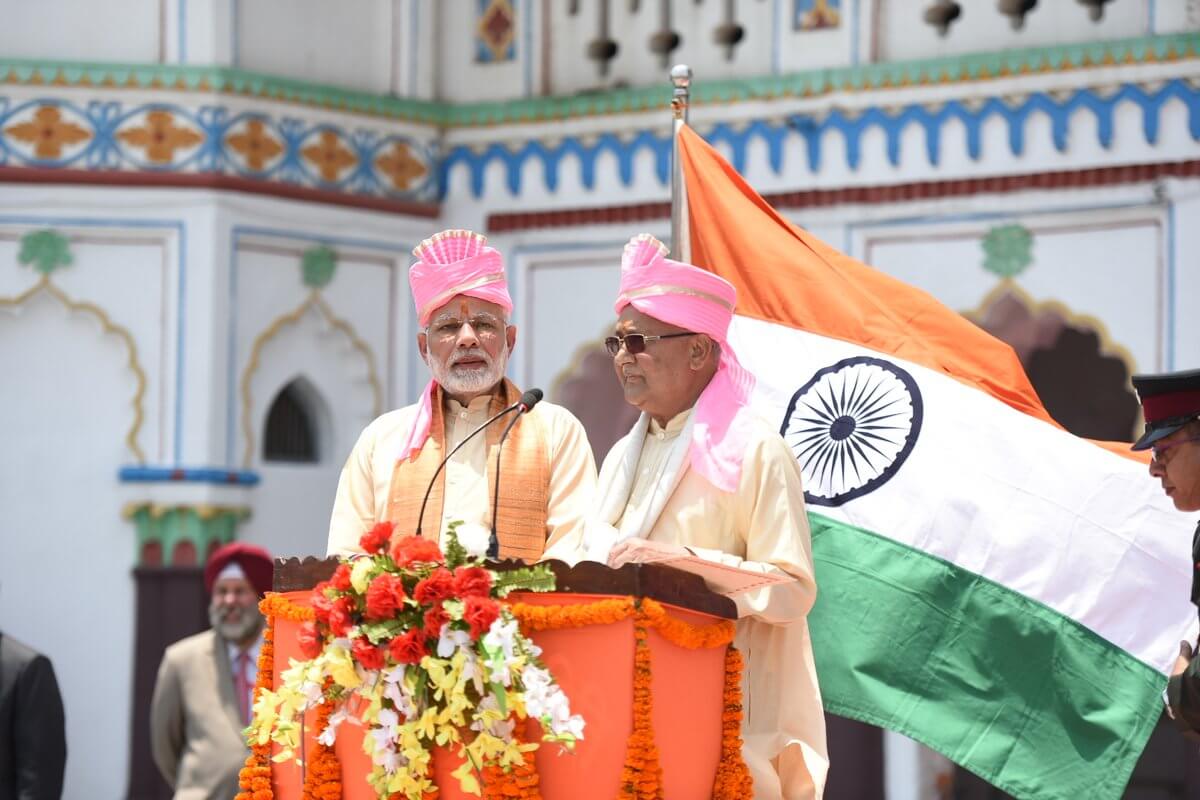Why PM Oli Fears Arzu's India Visit: Unseen Political Drama Unfolds

Foreign Minister Dr. Arzu Rana Deuba’s warm reception in Delhi during her India visit has triggered increased fear and uneasiness in Prime Minister KP Sharma Oli, as revealed by reliable sources. Although not expressed publicly, secret discussions indicate his growing suspicion towards coalition partner Nepali Congress and neighboring India.
The day after Arzu returned to Nepal, on Friday, August 23, Ashok Rai, who was split from Upendra Yadav's party, was called to Baluwatar at midnight. It’s reported that a midnight meeting, said to be orchestrated by Oli himself, took place. Frustrated by India not inviting him for a visit, Oli made an offer: "I'm ready to manage whoever you need. Let’s unite again. We were once part of the same party." His tone reflected his deep mistrust towards India: "Congress can’t be relied upon, give me your support."
Oli's public remarks also indicate his diminishing trust in the Congress party. For example, shortly after Arzu’s return, he mentioned the possibility of making a woman the prime minister, trying to reassure both India and Boudhanilkantha (the residence of Congress leader Deuba). During the launch of a book by media entrepreneur Rameshwar Thapa, which discussed the Congress-UML alliance, Oli reiterated his commitment to rotating the prime ministership in front of Deuba. The fact that he wasn’t invited by India, the public offer of the prime ministership to Arzu, setting a term for his own tenure for the first time, and seeking unity with Ashok all indicate his growing lack of confidence in the alliance.
But why does Oli place so much importance on Ashok, whose party holds just seven seats? His strategy is to make UML the largest party in Parliament and position himself as prime minister under Article 76(3) of the Constitution. To do so, he plans to merge Ashok’s faction, split from Upendra, into UML. Congress currently has 89 seats, while UML, with 78, needs 12 more to become the largest party. By merging Ashok’s faction of seven members into UML, along with plans to split Unified Socialist and bring in members like Prem Ale, UML's seat count could reach 90.
Ashok has reportedly been told that five Unified Socialist MPs, including Ale, are ready to join UML. However, a legal provision preventing party division within five years of forming a new party is holding them back. To address this, there’s a plan to amend Section 33 of the Political Parties Act, reducing the period from five years to three.
The division of JSP, however, hasn’t been recognized, hindering this strategy. Upendra Yadav has challenged the split in the Supreme Court, which has ordered a status quo until a decision, expected by September 13, which has now been postponed to December 6. Despite this, Oli made a proposal to Ashok: "Let’s unite temporarily."
While Ashok is reportedly ready to join UML, party leaders reveal he’s also in talks with Madhav Nepal and Prachanda. Madhav recently proposed cooperation, saying, "You’re also a victim of Oli, and so are we." Prachanda, on the other hand, proposed working together on shared issues, like identity politics. Amid these circumstances, it's reported that Oli, suspicious of Arzu's Delhi visit, invited Ashok for secret discussions to keep him from slipping away.
In Ashok's circle, there's a saying: "Prachanda barks, Oli bites," reflecting how Prachanda boasts about splitting JSP, but it was Oli who orchestrated it. However, some JSP members argue that Upendra’s leadership style was equally responsible for Ashok's departure.
For instance, Nawal Kishore Sah Sudi and Birendra Mahato were made ministers by Upendra, yet they supported the split. Nawal, who continued as a minister, was dissatisfied with constant demands for money. The practice of raising funds by offering ministerial positions, which started in 2008 after the MJF split, has led to widespread discontent. Birendra Mahato and others were already frustrated with this, which led them to side with the split.
Amid growing dissatisfaction within JSP, those who aligned with Ashok claim that Oli facilitated the split. One leader said, "In our rebellion against Upendra’s autocracy, Oli supported us." According to him, Oli promised Ashok that election commissions and courts were on his side, and that they needed to stay united until 2027, with a pledge to include them in the government.
Had the court ruled by September 13, another division in JSP could have occurred. Leaders like Raj Kishor Yadav, who sought senior positions but were sidelined, are dissatisfied. However, the fact that Ashok’s faction hasn’t been recognized has made them hesitant.
In this complex national political landscape, much attention is on how Oli's strategy to make UML the largest party progresses and what role Congress will play. Will Congress agree to an ordinance that strengthens its main rival? Given the Congress party’s reluctance to pass such an ordinance, evident from its handling of key ministries, it seems unlikely they’ll support it.




![From Kathmandu to the World: How Excel Students Are Winning Big [Admission Open]](https://nepalaaja.com/img/70194/medium/excel-college-info-eng-nep-2342.jpg)
